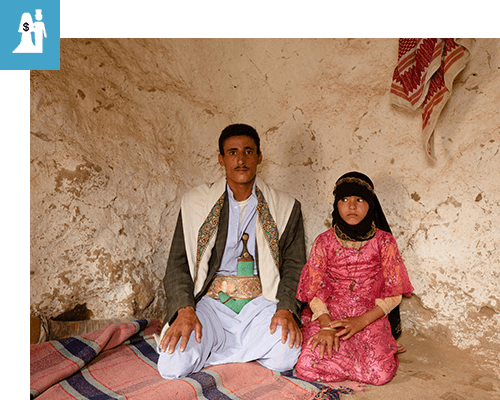Arranged / Forced marriages

A forced marriage is where one or both people do not (or in cases of people with learning or physical disabilities, cannot) consent to the marriage and pressure or abuse is used. The pressure put on people to marry against their will can be physical (including threats, actual physical violence and sexual violence) or emotional and psychological (for example, when someone is made to feel like they’re bringing shame on their family). Financial abuse (taking your wages or not giving you any money) can also be a factor. This guide provides information for professionals protecting the victims of forced marriage. It also gives details of financial support for charities and awareness-raising publications.
Every year, an estimated 14 million girls worldwide under 18 are married without their consent. This practice – child/forced marriage – increases a girl’s vulnerability to health risks, domestic violence, and poverty. It also severely limits her access to education and economic opportunities.
Tostan, an international NGO headquartered in Senegal, works with communities to share factual information on hygiene and health, human rights, and democracy and teaches skills in literacy, numeracy, problem-solving, and project management, among other topics. Their three-year holistic education program enables communities to make connections between child/forced marriage and its harmful consequences, providing them with a basis to abandon the practice.

